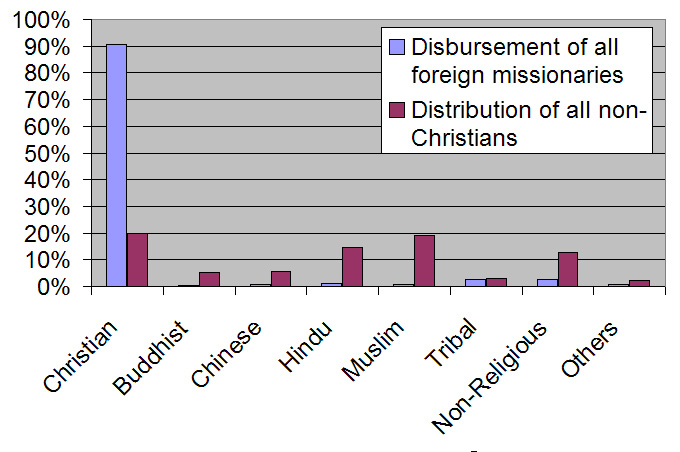It is politically incorrect to discriminate against anyone by statement or action in our contemporary world, but it happens inadvertently or perhaps intentionally in many spheres. If God expects us not to show favoritism or preference to special groups (James 2:1), it is because He does not show preferences to special groups or peoples.
The Early Church faced a crisis of focus. The early believers were all Jews, at least for the first ten years or so. They were greatly concerned to bring their fellow countrymen to Christ and rightly so. They reached out on a few occasions to share the Good News with the half-Jewish Samaritans and an Ethiopian Jewish proselyte, but there was no concern for the vast gentile world. In fact, it was worse than no concern; they despised them and could care less about the Gentile world. They were like Jonah. Admittedly they were great evangelists, but for many years their focus was too narrow. “Now those who were scattered after the persecution…traveled as far as Phoenicia, Cyprus and Antioch, preaching the word to no one but the Jews only” (Acts 11:19). It took a special intervention of God to make Peter aware of God’s attitude toward the world. He commanded Peter to think of the world as He does (Acts 10) by going to an unconverted, but pious, gentile named Cornelius and his family and friends.
Jesus made it clear that Israel was not God’s only focus when He said, “And I have other sheep, which are not of this fold [Israel]; I must bring them also, and they shall hear My voice…”(John 10:16). George Peters, in his book Theology of Missions, demonstrated that God reiterated 175 times in the OT that the intent of God was always to bless all nations equally with the amazing knowledge of God so they could walk with Him as well, but Israel refused to be as concerned as God has always been for the entire world.
It is easy to criticize the Jewish Christians of 2,000 years ago, but the chart below reveals that the gentile Christians today continue to show a preferential treatment toward their own kind of people, rather than seriously focusing on the different peoples of the world. Of the 45,000 missionaries today 92% are evangelizing among already indoctrinated Christian populations. Of the 2.2 billion Christian population approximately 660 million are born-again evangelicals. This evangelical population represent about 11% of the world’s population. Admittedly, the 1.6 billion remaining unevangelized “Christian” populations are ripe for evangelism; however, they represent only 25% of the world’s population made up of nominal followers of Roman Catholicism, Christian Orthodoxy, Protestants, cults, and other ancient or indigenous Christian populations.
The remaining 8% of the missionary force currently available is split somewhat evenly among the remaining 75% of the world’s population which is divided among the major religious groups of Buddhist, Chinese folklore, Hindu, Muslim, tribal or animist, Non-religious and other indigenous religions. These have no comparisons to Christianity.
The original question must surface when exposed to this evidence: Does God show a preferential treatment to Christendom? Is God calling 92% of His missionaries to reach the 25% Christian world population because they hold similar beliefs? If God has control of the hearts of His servants, surely there would be parity or a reasonable equality of laborers across the world scene.
It gets even worse when the overall Christian ministry in America is included, because the 45,000 missionary force represents only 4% of the overall North American full-time ministry involvement. Thus 96% of those committed to a career of evangelism and church ministries will remain within the continental US borders reaching primarily a Christianized population (75% of North Americans say they are “Christian,” though only 36% claim to be “born again,” according to George Barna—www.barna.org).
When students today say, “I can’t go to the mission field because I’m called to the pastorate [or evangelism, youth work, children work, etc.],” they imply, almost as an acceptable excuse, that they can not consider a foreign ministry (even doing the same thing) since their “calling” only applies to US-type churches. Is God continuing to add to the ranks of the 96% already serving in North America?
Could it be that it is not God who has a preference for a particular nation or ministry, but some of His workers, who remain more like Peter than like Paul, who planned to “preach the gospel in the regions that lie beyond…” (2 Cor 10:16).

